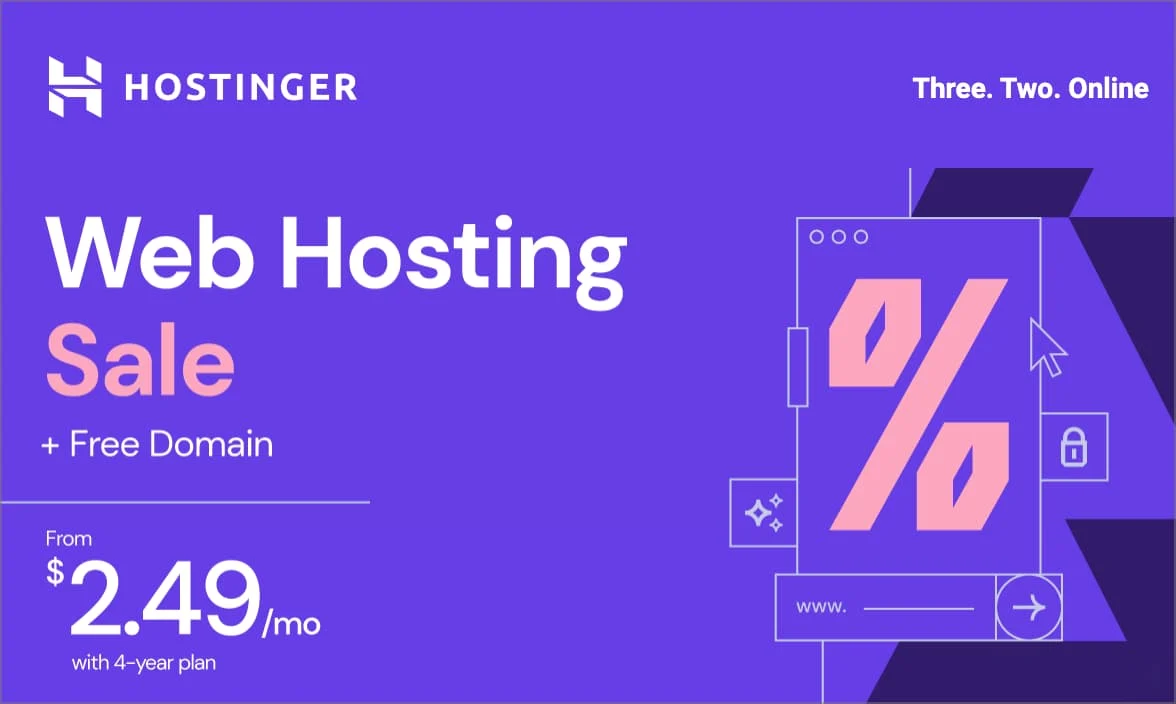
Find & Hire Top Web Developers: Freelance Platforms Compared
Top Web Developers
Introduction
The digital age has ushered in a new era of workforce flexibility, with freelance web developers leading the charge. Businesses, from budding startups to established corporations, are increasingly turning to freelance talent to build, maintain, and enhance their online presence. The benefits are undeniable: cost-effectiveness, access to specialized skills, and the agility to scale projects quickly.

The Challenge of Choice: Navigating the Freelance Marketplace
Yet, with this abundance of opportunity comes a challenge: the sheer volume of freelance web developers available online can be overwhelming. How do you identify the right front-end developer, back-end developer, or full-stack developer for your specific needs? Which freelance platforms and websites offer the most reliable talent pools?
Table of Contents
Understanding Your Web Development Needs
Types of Web Developers: Building the Digital World
The creation of a website or web application involves a complex interplay of skills. Different types of web developers specialize in various aspects of this process, working together to create seamless and functional online experiences. Let’s delve into the three primary types:
Front-End Developers: Crafting the User Experience
Front-end developers are the architects of a website’s visual and interactive elements. They’re responsible for everything that users see and interact with directly.
Key Responsibilities:
- User Interface (UI) Design: Front-end developers translate design concepts into functional interfaces using HTML (structure), CSS (style), and JavaScript (interactivity).
- Responsive Design: Ensuring websites adapt seamlessly to different screen sizes and devices (desktops, tablets, phones).
- Performance Optimization: Making sure websites load quickly and efficiently.
- Accessibility: Implementing practices that make websites usable for people with disabilities.
- User Experience (UX): Collaborating with designers to enhance how users navigate and interact with the website.
Tools of the Trade:
- HTML, CSS, JavaScript: The core languages of front-end development.
- JavaScript Frameworks (React, Angular, Vue): Tools that streamline the creation of complex interfaces.
- Version Control (Git): Systems for managing code changes.
Back-End Developers: The Power Behind the Scenes
Back-end developers are the masterminds behind the server-side logic that drives a website’s functionality. They handle the behind-the-scenes operations that users don’t see.
Key Responsibilities:
- Server-Side Logic: Writing code that processes data, handles requests, and interacts with databases.
- Database Management: Designing and maintaining databases to store and retrieve information.
- APIs: Building Application Programming Interfaces that allow different software systems to communicate.
- Security: Implementing measures to protect websites from vulnerabilities and attacks.
- Scalability: Ensuring websites can handle increased traffic and growth.
Tools of the Trade:
- Server-Side Languages (Python, Ruby, Java, PHP, Node.js): Used for writing back-end logic.
- Databases (MySQL, PostgreSQL, MongoDB): Where data is stored and organized.
- Web Frameworks (Django, Ruby on Rails, Express): Tools that provide structure for building back-end applications.
Full-Stack Developers: Masters of Both Worlds
Full-stack developers possess the unique ability to work on both the front-end and back-end of a web application. They’re versatile problem-solvers who understand the entire web development process.
Key Responsibilities:
- Bridging the Gap: Seamlessly connecting the front-end and back-end components of an application.
- Problem-Solving: Identifying and fixing issues that arise on either side of the development stack.
- Architecture: Designing the overall structure and functionality of a web application.
- Full Project Management: Potentially leading a project from conception to deployment.
Full-stack developers are proficient in the tools used by both front-end and back-end developers.
Hiring Web Developers: Where to Find the Best Talent
Top Freelance Platforms and Websites
If you’re looking to hire a web developer, several platforms offer access to talented individuals:
- Upwork: A massive marketplace for freelancers of all kinds, including web developers.
- Fiverr: Offers a wide range of services, from basic to advanced web development projects.
- Toptal: Connects you with top-tier freelance talent, thoroughly vetted for their skills.
- Guru: Features a diverse pool of developers with varying levels of experience.
- Freelancer: Another large platform with options for both fixed-price and hourly projects.

Choosing the Right Developer
Whether you’re looking for a front-end developer, back-end developer, or full-stack developer, consider the following factors:
- Expertise: Does the developer have experience with the specific technologies your project requires?
- Portfolio: Review their past work to assess the quality and style of their development.
- Communication: Effective communication is crucial for a successful collaboration.
- Budget: Determine your budget and find a developer whose rates align with it.
By carefully considering these factors, you can find the perfect web developer to bring your project to life.
Defining Project Scope in Web Development: A Guide for Hiring Developers
When you’re looking to hire a web developer, understanding the scope of your project is crucial. It helps you determine the type of developer you need, the budget, and the timeline. Here’s a breakdown of the different project scopes you might encounter:
Small Projects/Gigs
What they are: These are typically quick tasks that can be completed in a few hours or days. Examples include:
- Website tweaks (e.g., updating content, changing layouts)
- Bug fixes (e.g., resolving errors, improving functionality)
Who to hire: For small projects, a front-end developer might be sufficient. You can easily find talented freelancers on popular freelance marketplaces like Upwork or Fiverr.
Medium-Sized Projects
What they are: These projects are more involved and may take weeks or months to complete. Examples include:
- New website development (e.g., designing and building a website from scratch)
- Web app creation (e.g., developing interactive applications that run in a browser)
Who to hire: You’ll likely need a team of developers for medium-sized projects, including both front-end and back-end developers. A full-stack developer who can handle both aspects might also be a good option. Consider using platforms like Toptal or Guru to find experienced professionals.
Large, Complex Projects
What they are: These are enterprise-level solutions that require extensive planning, development, and testing. Examples include:
- Custom web portals
- E-commerce platforms
- Complex content management systems
Who to hire: For large projects, you’ll need a team of highly skilled developers with expertise in various areas. You may want to work with a specialized web development agency or look for top talent on platforms like Upwork Pro or Arc.
Choosing the Right Freelance Platform
There are many freelance websites available, each with its strengths and weaknesses. Here are a few popular options to consider:
- Upwork: A massive marketplace with a wide range of developers, suitable for all project sizes.
- Fiverr: Known for its affordable gigs, ideal for small projects and quick tasks.
- Toptal: Offers a curated selection of top-tier developers, perfect for medium to large projects.
- Guru: Another versatile platform with developers across various skill levels and specialties.
- Freelancer: A large platform with a bidding system, which can be helpful for budget-conscious clients.
Tips for Hiring Web Developers
- Clearly define your project scope: Before you start looking for developers, have a clear understanding of your project requirements. This will help you communicate your needs effectively and find the right fit.
- Review portfolios and references: Always check out a developer’s past work and client reviews to gauge their skills and experience.
- Communicate effectively: Regular communication is key to a successful project. Make sure you’re on the same page with your developer throughout the process.
- Use milestones and escrow payments: Breaking down your project into milestones and using escrow payments can help ensure that both parties are satisfied with the progress and deliverables.
By following these tips and understanding the different project scopes, you’ll be well on your way to hiring the perfect web developer for your next project.

Budget Considerations: Matching Your Web Development Needs with the Right Platform
The world of web development offers a vast array of platforms and talent, catering to budgets ranging from shoestring to extravagant. Whether you’re a startup, small business, or established enterprise, understanding the financial landscape is crucial for making informed hiring decisions.
Navigating the Freelance Marketplace
The freelance marketplace has democratized web development, making skilled professionals accessible to businesses of all sizes. Platforms like Upwork, Fiverr, and Freelancer connect you with freelance web developers from around the world, offering varying levels of expertise and rates.
Top Freelance Platforms: A Budget Breakdown
- Upwork: Upwork is a popular choice for businesses seeking experienced developers. You can find front-end developers, back-end developers, and full-stack developers here. Hourly rates can range from $15 to $150+ per hour, depending on experience and location.
- Fiverr: Fiverr is known for its gig-based system, where freelancers offer specific services at fixed prices. This platform is a good option for smaller projects or one-time tasks. Prices can start as low as $5 and go up to several hundred dollars.
- Freelancer: Freelancer operates on a bidding system, where you post your project and developers submit proposals with their estimated cost. This platform is suitable for both small and large projects. Costs can vary widely depending on the project scope.
Hiring Web Developers: Factors Affecting Cost
Several factors influence the cost of hiring web developers:
- Experience Level: Experienced developers generally command higher rates due to their proven skills and knowledge.
- Location: Developers based in countries with a lower cost of living may offer more competitive rates.
- Project Complexity: Larger, more complex projects will naturally require more time and expertise, leading to higher costs.
- Platform: Different platforms have different fee structures, which can impact the overall cost.
Cost-Saving Strategies on Freelance Platforms
- Clearly Define Your Project: A well-defined project scope helps developers provide accurate estimates and prevents scope creep, which can drive up costs.
- Consider Fixed-Price Projects: For smaller, well-defined projects, fixed-price contracts can provide cost certainty.
- Explore Less Experienced Talent: Junior developers or those from emerging markets may offer lower rates while still delivering quality work.
- Leverage the Power of Reviews: Look for developers with positive reviews and ratings to ensure a successful collaboration.
Beyond Freelance Platforms: Other Hiring Options
If freelance platforms aren’t the right fit for your needs, consider these alternatives:
- Web Development Agencies: Agencies offer a full suite of services, including project management, design, and development. This option is often more expensive but can be ideal for larger or complex projects.
- In-House Teams: Building an in-house team provides more control and collaboration, but it also comes with higher overhead costs, including salaries, benefits, and office space.
- Offshore Development Centers: Offshore development centers (ODCs) provide a dedicated team in a lower-cost location. This option can be cost-effective for long-term projects.
Choosing the Right Path for Your Budget
The ideal hiring path depends on your budget, project needs, and risk tolerance. Consider the following:
- Freelance: Best for small to medium-sized projects, limited budgets, and flexibility.
- Agency: Ideal for larger projects, complex requirements, and a need for full-service support.
- In-House: Suitable for long-term projects, a desire for complete control, and ongoing development needs.
- Offshore: Cost-effective for long-term projects with well-defined requirements.
Top Freelance Platforms for Web Developers
H1: Hiring a Web Developer? Top Freelance Platforms to Consider
The world of freelance web development is vast, and choosing the right platform can significantly impact the success of your project. Two major contenders are Upwork and Toptal, each with distinct advantages and drawbacks. Let’s delve deeper into what they offer.
Upwork: The Expansive Freelance Marketplace
Upwork is an undeniable giant in the freelance marketplace.
Pros of Upwork
- Massive Talent Pool: With millions of freelancers across the globe, Upwork offers access to a wide array of skills, including front-end developers, back-end developers, and full-stack developers.
- Flexible Budgeting: You’ll find freelancers at various price points, making Upwork suitable for projects with diverse budgets.
- Project Variety: Whether you need a quick website fix or a complex web application, Upwork likely has the right developer for you.
Cons of Upwork
- Time-Consuming Vetting: With so many freelancers, identifying the perfect fit can be a lengthy process. You’ll need to carefully review portfolios, references, and past work.
- Fierce Competition: Freelancers on Upwork often face stiff competition, which could lead to lower bids but might also attract less experienced developers.
Toptal: Elite Talent, Premium Pricing
Toptal takes a different approach, focusing on quality over quantity.
Pros of Toptal
- Rigorous Screening: Toptal claims to accept only the top 3% of freelance talent. This means you’re more likely to find experienced, high-performing developers.
- Streamlined Hiring: Toptal’s team assists you in matching with the right developer, saving you valuable time in the vetting process.
- Quality Assurance: Toptal offers a trial period, ensuring you’re satisfied with the developer’s performance before committing to the project.
Cons of Toptal
- Premium Pricing: Toptal’s exclusivity comes at a cost. You’ll likely pay a higher hourly rate compared to Upwork.
- Best for Larger Projects: Due to the higher costs, Toptal is typically more suitable for substantial projects with ample budgets.
Choosing the Right Platform for Your Needs
The best freelance website for you depends entirely on your specific requirements. Consider the following:
- Budget: If you’re working with a limited budget, Upwork might be a more viable option.
- Project Scope: For smaller projects or quick fixes, Upwork’s vast talent pool might be advantageous. However, if you’re embarking on a complex project that demands top-tier expertise, Toptal’s rigorous screening process could be worth the investment.
- Time Constraints: If you’re short on time and need to hire a developer quickly, Toptal’s streamlined matching process could be a lifesaver. However, if you’re willing to invest time in vetting candidates, Upwork’s larger pool might offer more options.
Additional Tips for Hiring a Web Developer
Regardless of the platform you choose, keep these tips in mind:
- Clearly Define Your Project: Outline your project scope, timeline, and budget to attract the right candidates.
- Review Portfolios: Carefully examine the developer’s past work to assess their skills and style.
- Check References: Don’t hesitate to ask for references and speak to past clients to gauge the developer’s reliability and professionalism.
- Communication is Key: Establish clear communication channels and expectations from the outset to ensure a smooth collaboration.
Hiring Web Developers: Fiverr vs. Guru – A Deep Dive
The world of freelance web development is vast. Two popular platforms, Fiverr and Guru, offer access to a global pool of talent. Each has its own strengths and weaknesses to consider when looking to hire your next front-end, back-end, or full-stack developer.
Pros of Fiverr for Web Development
- Affordability: Fiverr is known for its budget-friendly gigs. You can find developers offering basic web development services starting at $5. This is great for small businesses or individuals with limited resources.
- Quick Turnaround: Many Fiverr gigs offer fast delivery options, ideal for projects with tight deadlines.
- Wide Variety of Services: Fiverr’s massive marketplace covers a broad spectrum of web development needs, from simple landing pages to e-commerce integrations.
- Easy to Browse: Fiverr’s interface makes it easy to search for specific skills and compare developers based on their reviews and portfolios.
Cons of Fiverr for Web Development
- Quality Control: While there are talented developers on Fiverr, quality can vary significantly. It’s essential to vet developers carefully and check their reviews before hiring.
- Complexity: Fiverr is best suited for smaller, less complex projects. For large-scale or intricate web development work, you may need a platform with a more established vetting process.
- Communication: Clear communication can sometimes be a challenge due to language barriers or time zone differences.
- Scope Creep: Some freelancers might try to upsell you on additional services, which can lead to unexpected costs.
Guru: User-Friendly Platform for Finding Top Freelance Talent
Pros of Guru for Web Development
- User-Friendly Interface: Guru’s platform is intuitive and easy to navigate, making it simple to find and connect with developers.
- Secure Payment System: Guru’s SafePay system protects both clients and freelancers, ensuring payment is only released when milestones are met.
- Detailed Profiles: Developer profiles on Guru are often more comprehensive than those on Fiverr, including work history, certifications, and client testimonials.
- Focus on Professionals: Guru tends to attract more established, experienced freelancers compared to some other platforms.
Cons of Guru for Web Development
- Smaller Talent Pool: While Guru has a quality selection of developers, the talent pool may be smaller than on platforms like Upwork or Fiverr.
- Cost: Guru’s pricing structure may be slightly higher than Fiverr, but this often reflects the higher level of experience of its freelancers.
- Project Management: Guru’s project management tools, while helpful, may not be as robust as some other freelance websites.
Which is the Best Freelance Website for You?
The best freelance website for hiring a web developer depends on your specific needs. If you’re looking for an affordable, quick solution for a smaller project, Fiverr might be your best bet. However, if you need a more experienced developer for a complex project and are willing to pay a bit more, Guru could be a better fit.
Specialized Platforms
Top Freelance Platforms for Hiring Web Developers in 2024
Finding the perfect web developer for your project can be daunting. Whether you need help with WordPress, require a seasoned expert, or want a pre-vetted developer, these freelance marketplaces have you covered.
Codeable.io: Your Go-To for WordPress Expertise
Why Choose Codeable?
- WordPress Specialists: Codeable is the only freelance marketplace that focuses exclusively on WordPress. Every developer on their platform is a WordPress expert, ensuring you get top-notch quality.
- Rigorous Vetting Process: Codeable’s stringent vetting process guarantees that only the most skilled WordPress developers make it onto their platform.
- Wide Range of Services: From small website tweaks to complex custom development, Codeable has a wide range of WordPress services to offer.
- Transparent Pricing: You’ll get a clear, upfront quote for your project before work begins, with no hidden fees.
Ideal for:
- Businesses of all sizes who need reliable WordPress development.
- Website owners looking for help with anything from theme customization to plugin development.
- Agencies seeking to outsource WordPress projects.
Gun.io: Where Experienced Developers Thrive
Why Choose Gun.io?
- Senior-Level Talent: Gun.io specializes in connecting you with experienced, senior-level developers. You’ll find experts in a variety of technologies, including front-end, back-end, and full-stack development.
- Proven Track Record: Gun.io’s developers have a track record of delivering high-quality work on time and within budget.
- Long-Term Relationships: Gun.io fosters long-term relationships between clients and developers, ensuring a smooth and successful collaboration.
- Hands-On Support: Gun.io provides ongoing support throughout the engagement, taking care of everything from contracts to payments.
Ideal for:
- Startups and established companies looking to hire top-tier talent.
- Projects that require experienced developers with specialized skills.
- Clients who value long-term relationships with their developers.
Lemon.io: Pre-Vetted Developers for a Stress-Free Experience
Why Choose Lemon.io?
- Pre-Vetted Developers: Lemon.io thoroughly vets every developer on their platform, saving you the time and hassle of doing it yourself.
- Quick and Easy Hiring: You can find the perfect developer for your project in as little as 48 hours.
- Flexible Engagement Models: Lemon.io offers both full-time and part-time engagement models, so you can choose what works best for you.
- Risk-Free Guarantee: If you’re not satisfied with your developer, Lemon.io will find you a replacement for free.
Ideal for:
- Startups and small businesses who need to hire developers quickly and easily.
- Clients who want the peace of mind of working with pre-vetted developers.
- Projects that require a flexible engagement model.
Tips for Hiring a Freelance Web Developer
How to Hire Top Web Developers: A Step-by-Step Guide for Success
Hiring the right web developer is crucial for the success of your project. Whether you’re using top freelance platforms, seeking out talent on the best freelance websites, or exploring a freelance marketplace, this guide will help you find the perfect fit – whether you need a front-end developer, back-end developer, or a versatile full-stack developer.
1. Write a Clear Project Description
Your project description is the foundation for attracting the right talent. Here’s what it should include:
- Project Overview: Summarize your website or application’s purpose, target audience, and desired features.
- Technical Requirements: Detail the specific technologies you require (e.g., React, Angular, Node.js, Python) or any frameworks your project should be built upon.
- Scope of Work: Break down the project into phases or tasks to help developers estimate timelines and costs.
- Budget and Timeline: Be upfront about your budget range and desired project completion date.
- Examples and Inspiration: Share websites or applications you admire to convey your vision.
2. Review Portfolios Carefully
- Relevant Experience: Look for developers who have worked on projects similar to yours in terms of technology and complexity.
- Code Quality: If possible, ask to see code samples or GitHub profiles to assess coding style and adherence to best practices.
- Design Sensibility: If aesthetics are important, examine their design portfolio or live websites they’ve built.
- Client Testimonials: Read reviews from previous clients to gauge their communication, professionalism, and ability to meet deadlines.
3. Conduct Interviews
Interviews are essential for getting to know potential developers and assessing their suitability:
- Technical Questions: Ask about their experience with specific technologies, problem-solving approaches, and how they stay updated on industry trends.
- Communication Skills: Assess how well they explain complex technical concepts and how they handle feedback or challenges.
- Cultural Fit: Ensure their personality and work style align with your team and project goals.
4. Set Milestones and Deliverables
- Project Roadmap: Create a detailed plan with clear milestones and corresponding deliverables.
- Regular Check-Ins: Schedule regular progress meetings to review work, discuss any issues, and adjust plans as needed.
- Version Control: Use tools like Git for collaboration and tracking changes to the codebase.
5. Use Escrow or Milestone Payments
Protect yourself and your developer with secure payment methods:
- Escrow Service: A third-party service holds payment until both parties agree that milestones have been met.
- Milestone Payments: Release payments incrementally as specific project phases are completed successfully.
Where to Find Top Developers
- Top Freelance Platforms: Upwork, Freelancer, Toptal
- Best Freelance Websites: Guru, Fiverr (for smaller projects)
- Freelance Marketplace: Consider niche platforms that cater to specific technologies or industries.
By following these steps, you’ll increase your chances of hiring a web developer who can bring your vision to life, whether you’re working with a seasoned full-stack developer or someone specializing in front-end or back-end development.
Conclusion:
The journey to finding and hiring the ideal web developer can be exciting, but it’s crucial to make informed decisions. Let’s recap the top freelance platforms and how to choose the one that’s right for you.
Top Platforms: A Quick Review
Each freelance marketplace offers unique advantages and drawbacks, catering to different needs and budgets:
- Upwork:
- Strengths: Massive talent pool, diverse skill sets (front-end, back-end, full-stack), robust project management tools.
- Weaknesses: Can be overwhelming for beginners, competition can drive down rates.
- Fiverr:
- Strengths: Budget-friendly, great for smaller projects or specific tasks, easy to browse and compare services.
- Weaknesses: Quality can vary, less suitable for complex projects requiring ongoing collaboration.
- Toptal:
- Strengths: Rigorous screening process ensures top-tier talent, ideal for high-budget, mission-critical projects.
- Weaknesses: Expensive, not the best option for smaller businesses or limited budgets.
- Guru:
- Strengths: User-friendly interface, good for mid-sized projects, flexible payment options.
- Weaknesses: Smaller talent pool than Upwork, less specialized in web development.
- Freelancer:
- Strengths: Large international community, competitive bidding system can lower costs.
- Weaknesses: Quality control can be an issue, disputes can arise over project deliverables.
Choosing Your Platform: Factors to Consider
Selecting the best freelance website involves weighing these key aspects:
- Project Scope: Is your project simple or complex? Does it require a specialist (e.g., front-end developer) or a generalist (full-stack developer)?
- Budget: How much are you willing to invest in your web development project? Different platforms cater to various price points.
- Timeline: Do you need a developer quickly, or do you have more flexibility? Some platforms have faster turnaround times than others.
- Experience: Are you comfortable managing a project remotely, or do you prefer a platform with more hand-holding?
The Right Fit for Your Success
Remember, the best platform is the one that aligns with your specific needs and goals. Take the time to explore each freelance marketplace, compare their features, read reviews, and don’t hesitate to reach out to developers to discuss your project.
By making an informed decision, you’ll be well on your way to establishing a successful partnership with a talented web developer who can bring your vision to life.
FAQs
What are the different types of web developers I can hire?
Front-End Developers: They focus on the visual aspects of a website that users interact with directly (HTML, CSS, JavaScript).
Back-End Developers: They handle the server-side logic, databases, and overall functionality behind the scenes (Python, Ruby, PHP, etc.).
Full-Stack Developers: These versatile experts are proficient in both front-end and back-end technologies, making them capable of building entire web applications.
Where can I find top-notch freelance web developers?
You can find talented developers on various freelance platforms and best freelance websites:
Upwork: A massive marketplace for all kinds of freelance work, including web development.
Fiverr: Offers services (called “gigs”) at various price points, suitable for smaller projects or specific tasks.
Toptal: A curated platform known for its high-quality vetting process, ideal for finding experienced developers.
Freelancer: Another large platform with diverse talent pools, suitable for various budgets.
How do I choose the right freelance platform?
Project Scope: Some platforms cater to smaller projects (Fiverr), while others are better suited for larger engagements (Upwork, Toptal).
Budget: Platforms have different pricing structures, so choose one that aligns with your financial resources.
Vetting Process: Platforms like Toptal rigorously screen their freelancers, ensuring a higher level of expertise.
Project Management Tools: If you need built-in project management features, look for platforms that offer them.
Are there any risks to hiring freelance web developers?
While there are many benefits, be aware of potential risks:
Communication Barriers: Time zone differences and language barriers can sometimes lead to misunderstandings.
Quality Control: Not all platforms have stringent vetting processes, so be sure to thoroughly vet candidates yourself.
Project Management: You may need to manage the project more closely than with an in-house team.
How can I mitigate the risks of hiring freelancers?
Clear Contracts: Establish a detailed contract outlining deliverables, timelines, payment terms, and ownership of intellectual property.
Milestones and Payments: Break the project into milestones and tie payments to the completion of each milestone.
Regular Communication: Schedule regular check-ins to track progress and address any concerns promptly.
Dispute Resolution: Choose platforms that offer dispute resolution services to help resolve any conflicts that may arise.
I need Services with …
- Wordpress Service
- Shopify Service
- Youtube Service
- Cv and resume Service
- Linkedin Service
Latest Post
-
Top Daily Taste WordPress Theme: Best Choice for Your Site
$ 15Original price was: $ 15.$ 13Current price is: $ 13. Add to cartAdd to WishlistAdd to Wishlist -

Get Hostinger’s Low-Cost Hosting Now!
Don’t miss out on affordable hosting with Hostinger – click now to bring your website online at an unbeatable price!











1 comment
[…] The world of web development offers endless variety. You can specialize in web design, front-end development, back-end development, e-commerce, or niche areas like WordPress […]